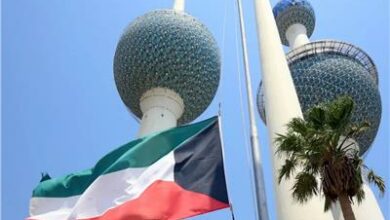Riyadh–A security clampdown in the Saudi capital kept a lid on a planned day of rage on Friday, while determined police action in neighboring Kuwait and Bahrain appeared to deflate demonstrators' zeal.
Rallies after Friday prayers have proved decisive in popular uprisings that have overthrown the rulers of Tunisia and Egypt. But the heavy police turnout in some major Gulf cities managed to put a lid on discontent that has surfaced in the region.
Yemen, by contrast, continued to see massive, countrywide protests, with President Ali Abdullah Saleh struggling to maintain his 32-year-grip on power.
Unlike in Yemen, Saudi activists on the Internet had called for reform rather than revolution and announced plans for rallies on Friday in defiance of an official ban on such gatherings in the world's top oil exporter.
But no one showed up in Riyadh, perhaps deterred by police.
A lone man approached a group of journalists, saying he wanted more freedoms but hadn't found any fellow demonstrators.
"People are angry," he said, appearing on the verge of tears. "They are scared. Everybody goes around the area and sees the police. They feel afraid. Come on. We are human."
The muted response to the Internet appeal helped push oil prices lower on Friday. Markets had been jittery about the prospect of upheaval in Saudi Arabia, which has guaranteed oil supplies to the West for decades.
In Saudi Arabia's oil-rich east, however, several hundred Shia protesters rallied in at least four Shia towns, less wealthy or developed than Riyadh, to demand the release of prisoners held for years without trial.
Shia towns have seen scattered demonstrations over the last three weeks, inspired protests in nearby Bahrain. Saudi Shias complain of discrimination in the face of the country's dominant Sunni majority.
In Bahrain, the Shias are in the majority, but still complain of discrimination at the hands of the Sunni elite.
Bahraini police blocked several thousand protesters from reaching the royal palace on Friday, after the Interior Ministry had warned such a march would provoke clashes between the Shia activists and Sunnis residents.
Police pushed back a group of rock-throwing Sunnis who approached police lines and fired tear gas to disperse Shias trying to get around their roadblock.
"I say to all our people, Sunnis and Shia, that it is forbidden to shed the blood of anyone under any pretext," Bahrain's top Shia Muslim cleric, Sheikh Issa Qassim, said in his Friday sermon, seeking to avoid a sectarian conflict.
In Kuwait, further to the north, a small demonstration by stateless Arabs was met with volleys of teargas, as police swiftly broke up a small crowd that had gathered after prayers.
In Yemen, fighting broke out between small groups of government supporters and protesters after record crowds had flooded the capital Sanaa, demanding a change of leader. Almost 30 people have died in the recent disturbances.
"Leaving means leaving. There isn't a better option," crowds chanted in a protest billed as a "Friday of no return."
Rulers around the Middle East are struggling to hold back a new generation of Arabs who have grown up in the Internet age of easy networking and have become increasingly bold in their demands for change.
In an act of regional solidarity, Gulf Arab oil producers on Thursday launched a $20 billion aid package for Bahrain and Oman — a job-generating measure that will enable the two countries to upgrade their housing and infrastructure.
"For Oman and Bahrain the new economic package is welcomed, but it cannot address challenges in the immediate terms," said IHSGlobal Insight Middle East political analyst Gala Riani and energy analyst Sam Ciszuk in a note.
"Meanwhile, the extent of unrest in Saudi Arabia over the coming days (will) likely show if the spreading popular risings across the Middle East now will start ebbing out, or continue to intensify," they added.




